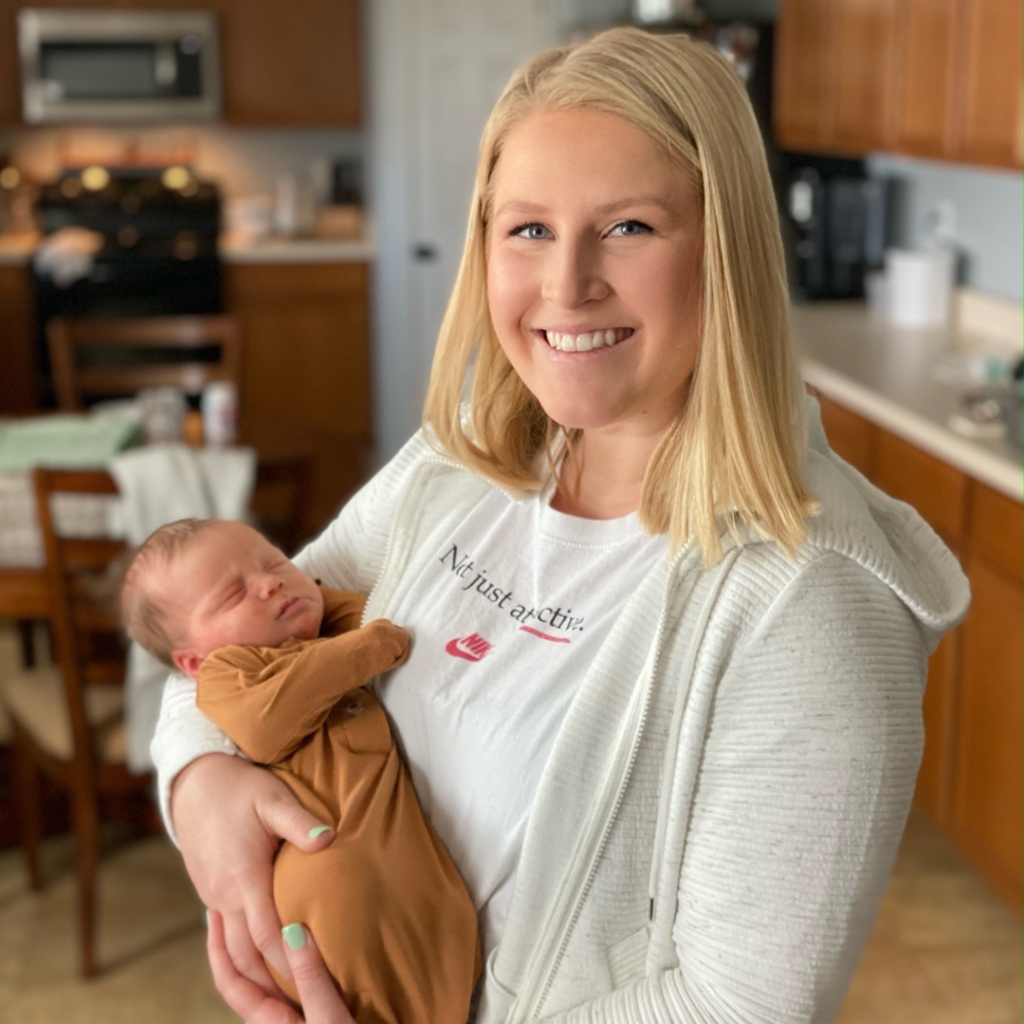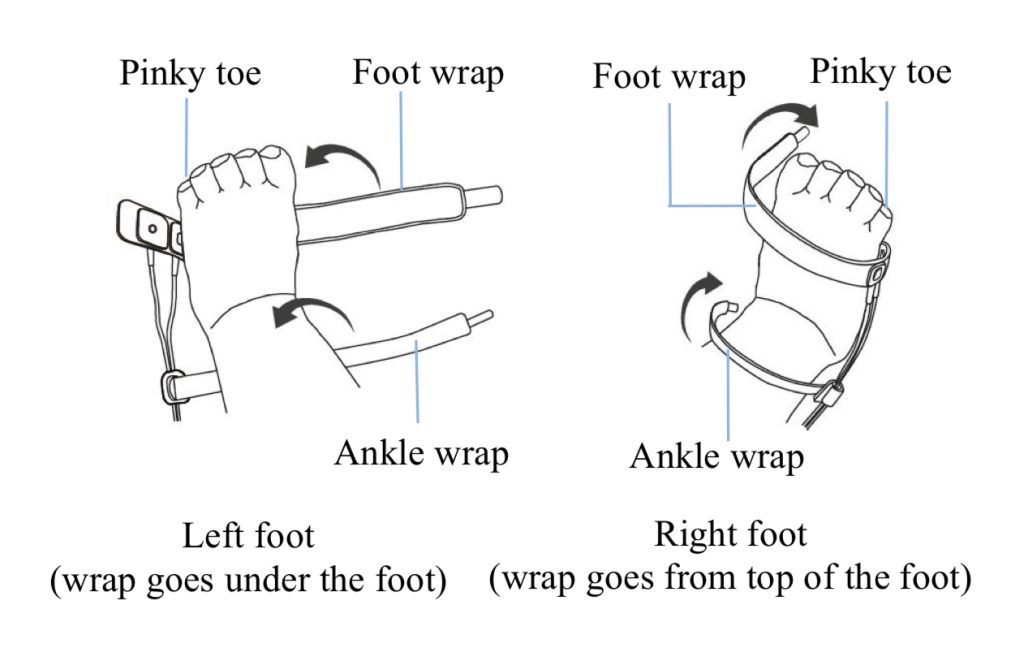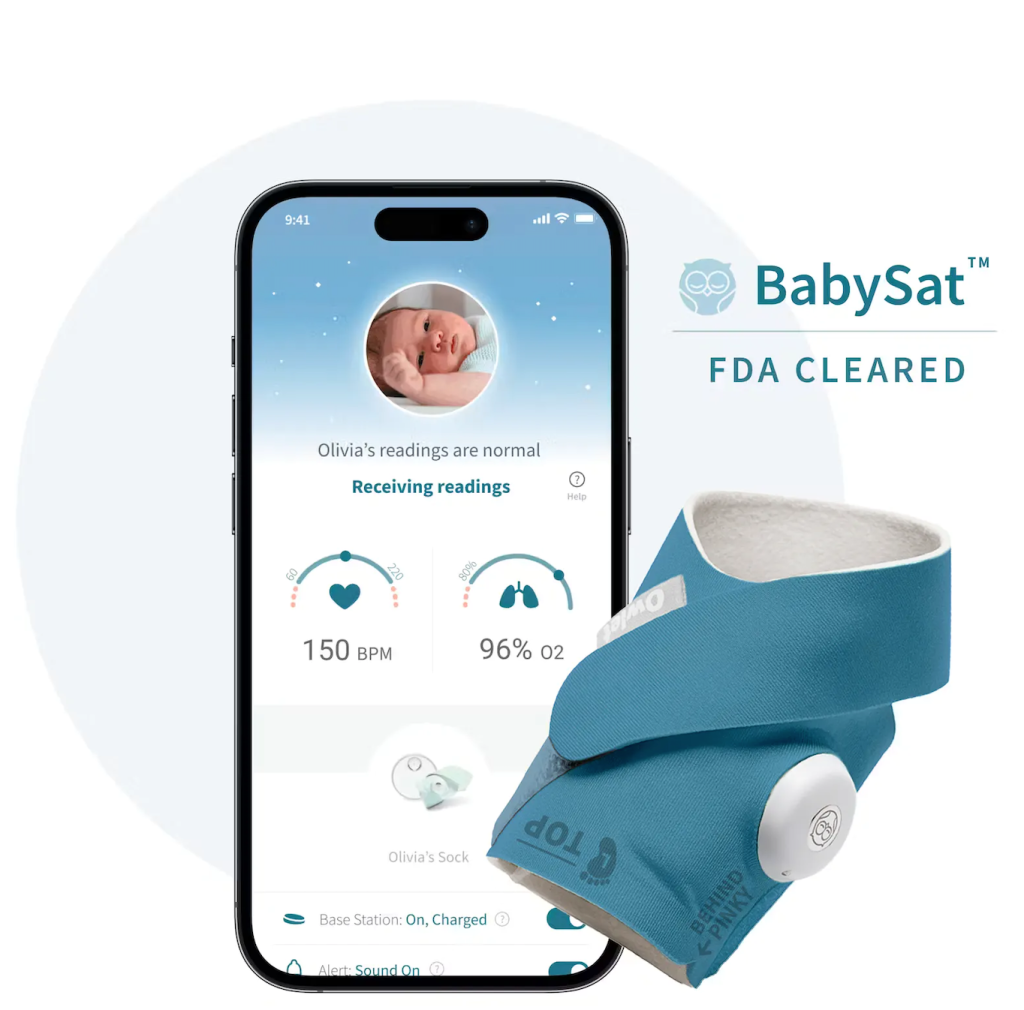Infant Pulse Oximetry: Owlet and More
Updated, July 2, 2025 – Wearable devices for newborns notify parents and caregivers if our babies’ heart rates or oxygen levels are out of the normal range. While many parents report the devices gave peace of mind, some were pulled from the shelves in 2021. Owlet is back however with FDA approval and there are now other infant pulse oximetry devices as well.
Infant Pulse Oximetry: What is it?
Here’s what parents of newborns and infants should know about infant pulse oximetry and wearable monitoring systems for newborns:
- What do Pulse Oximeter’s do? They monitor a baby’s breathing and overall oxygenation, which is especially important for: premature infants, those with respiratory issues, or baby’s recovering from illness.
- Prescription Based– Many are available by prescription only. Prescriptions are for babies who may benefit from additional monitoring at home
- Physician Supervised – A physician sets the range of normal for pulse rate and oxygen saturation level. An alert sounds when your baby’s reading falls outside of these levels.

What About Safe Sleep Recommendations?
In the past doctor’s have cautioned against using wearable devices to monitor our babies’ vital signs. Medical grade devices are used in hospital NICU’s of course but home monitors were not recommended because of little regulation and false alarms. In 2022 the American Academy of Pediatrics also amended Safe Sleep recommendations stating that parents should avoid commercial devices that claim to reduce the risk of SIDS or other sleep-related deaths. AAP further states that the use of products claiming to increase sleep safety may provide a false sense of security and complacency for caregivers.
We asked Owlet about how their monitor fits into the 2022 guidelines and this is the response:
The AAP recommends avoiding the use of commercial devices that claim to reduce the risk of SIDS or other sleep-related deaths. BabySat is a prescription-only, medical pulse-oximeter device that is intended for babies that a healthcare provider determines could benefit from at-home monitoring while under the supervision of a physician. It is not intended to reduce the risk of SIDS or other sleep-related deaths, but will notify parents in real-time if their baby needs assistance and their pulse rate or oxygen saturation level falls too low or too high based on ranges set by their physician.

Remember to Use These Items Correctly
Pulse oximeters are essential for tracking your baby’s oxygen levels, but using them on a restless infant can be tricky and exhausting. Challenges like keeping the sensor in place and avoiding false alarms are common, especially when sleep-deprived. Safe, accurate pulse oximeter readings are just as important as the devices themselves and it’s important to know how to place them.
As always, decisions about your infant’s health should be made by you and your child’s primary care doctor.
Infant Pulse Oximetry- But What About Other Sleep Items?
Parents as well as postpartum doulas, night nannies and nurses want facts when it comes to safe sleep. So you should know that any product intended or marketed for infant sleep must meet a federal safety standard. While some have this standard, it’s important to note that rockers, pillows, nappers and inclined sleepers have not. These items have been banned for sale and recalled. This is because the product’s incline enables infants’ heads to slump forward. This compresses the trachea and blocks airflow. This leads to lack of oxygen.
Whether parents choose to use BabySat or not, the safest way for your baby to sleep is alone, on a firm flat mattress without anything else in the crib. Postpartum doulas, night nurses or newborn caregivers can ensure your baby is sleeping safely as well.

Categories
- Archives
- Baby Sleep Advice
- Expert Guides
- Hiring a Night Nanny
- Infant Safety
- Postpartum Health
- Twins & Multiples
